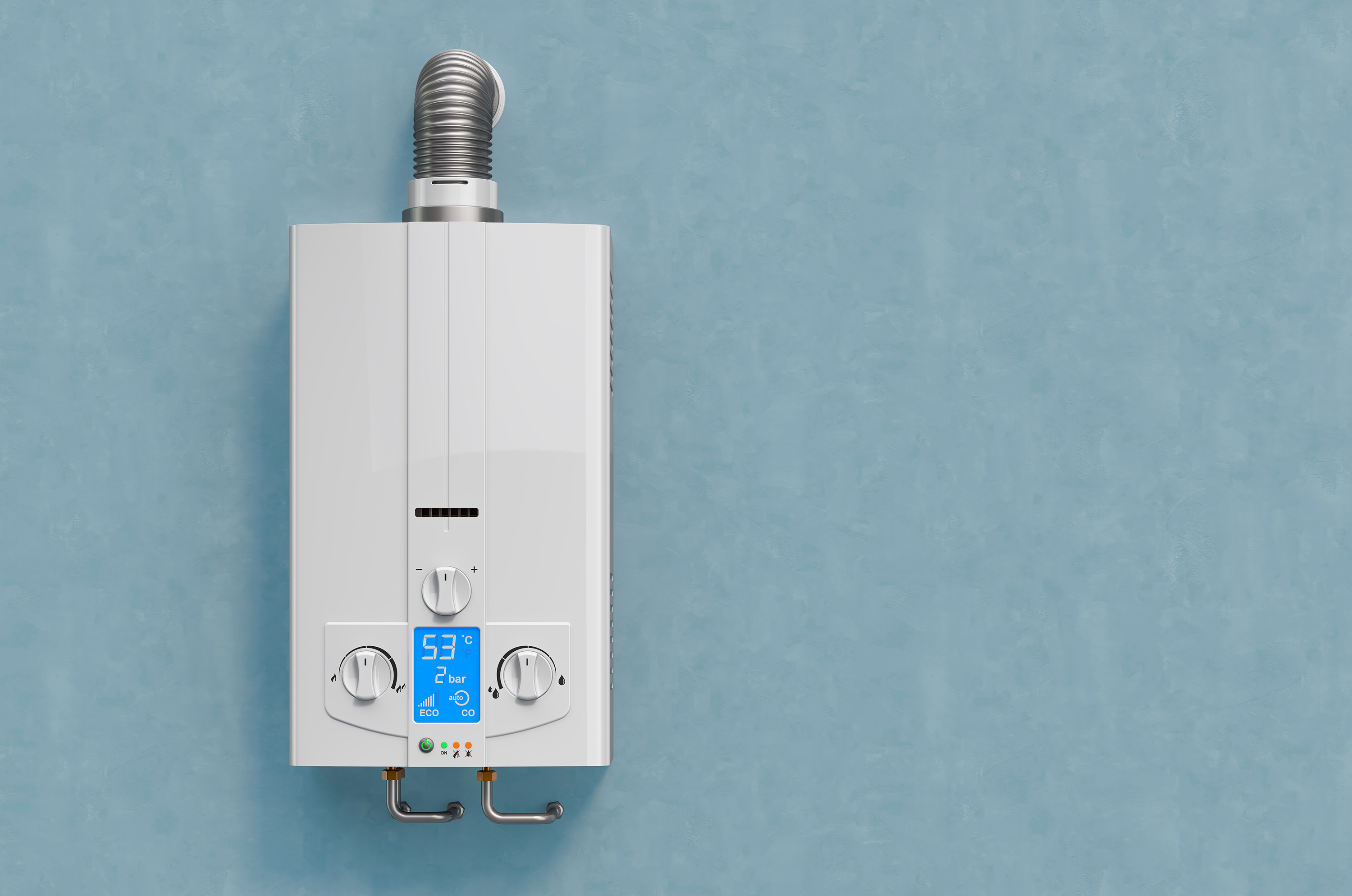

Boilers are a common way to heat a home, but it’s important to be aware that there are different types of boiler available, and getting in the know will enable you to make the best choice for yours.
What all boilers have in common is that they heat water in order to heat your home. But as well as distributing this heat in two alternative ways to warm your rooms, they run on different fuels with the result that there are different types available.
We’ve got the lowdown on all the types of boiler on offer here, along with their features and efficiency, so you can make the best choice if your home heating depends on a boiler.
What are the three different types of boiler?
Let’s begin with what all boilers have in common. Boilers are part of a central heating system, and designed to be a primary type of heating system for a home.
All household boilers burn fuel or use electricity in order to heat water and they provide low-pressure steam or hot water to rooms through a series of pipes. Steam is sent to steam radiators while hot water can either be supplied to radiators or to a radiant floor system – for example, hydronic (water) underfloor heating.
As for types of boiler, there are three of them: gas-fired boilers, oil-fired boilers, and electric boilers.
Gas-fired boilers
Gas boilers can use either natural gas or propane. To use natural gas, you’ll of course need to be in an area with a distribution system. Propane, which is delivered to your home then stored in a tank is an alternative if you live outside of one of these areas. The downside? It’s more expensive.
A modern gas-fired boiler is highly efficient.
Oil-fired boilers
Oil-fired boilers are a common choice for those who live somewhere where access to natural gas is limited. You’ll need to have the oil delivered to your home and store it in a tank. How much you pay for the oil will be affected by the fluctuations in oil prices, of course.
If you like the idea of using renewable fuels, it is possible to get a blend of biodiesel and heating oil to fuel your boiler from some companies. It’s a way to reduce dependence on foreign oil and draw on a domestic source, says the US Department of Energy. There’s an additional benefit. ‘The biodiesel blends also produce less pollution than pure heating oil,’ says the department.
Electric boilers
Electric boilers are the third of the types of boiler on offer. While these are winners in terms of energy efficiency, they often won’t be the best solution for a home because of the price of using this fuel compared to the other options in your area.
Steam or hot water system?
Wondering about the difference between boilers which provide steam and boilers which produce hot water? Boilers that produce steam are generally found in older homes and have to work at a higher temperature than those that produce hot water. The Department of Energy says they are ‘inherently less efficient’.
Alternatively, boilers provide hot water to radiators – either baseboard or upright – to distribute heat, and these are second in popularity to forced-air systems in newer homes.
Replacing a boiler
If you’re considering upgrading to a modern boiler, it’s crucial to be aware that its efficiency is shown via its AFUE or annual fuel utilization efficiency. All new boilers are required to show this so you can compare models.
The AFUE is shown as a percentage, and reveals how efficient the boiler is in converting energy from the fuel it uses to heat over a typical year. An AFUE of 90 per cent would mean 90 per cent of the energy in the fuel becomes heat, for example.
Older systems – whether furnace or boiler – might have an efficiency as low as 56 to 70 per cent, while new high efficiency versions can achieve 90 to 98.5 per cent, according to the Department of Energy.
The takeaway: upgrade your boiler from an old model to a new version and you could make significant savings as well as reducing carbon dioxide emissions.
Do I need a condensing boiler?
If you’re upgrading your boiler, you need to be aware that all boilers are either condensing or non-condensing models. A condensing boiler is so called because the flue gases are condensed in a second heat exchanger. This makes the boiler extra efficient. For a high efficiency system, it’s a condensing boiler you need.
It’s also important to specify a sealed combustion boiler when you’re buying. One of these brings outside air into the burner while exhaust flue gases are vented outside. A non-sealed combustion boiler wastes energy, and runs the risk of introducing dangerous gases into your home.
What’s a combination boiler?
A combination (combi) boiler is a model that can both provide space heating along with your hot water in one, and is a space-saving option.
‘The pro of having a combination boiler is that it is highly energy efficient because of its dual purpose as a house heater and a water boiler, which it does instantly,’ says Joshua Blackburn, founder and director of design and construction at Evolving Home.
‘A combination boiler is ideal for houses with not much space to spare because of its compact size and it is typically wall-hung, so that is space-saving as well.’
Bear in mind that if you have high simultaneous hot water demands in your house, a combination boiler may not be suitable, so you should take advice from a professional heating contractor.
What type of boiler is best?
The type of boiler that is best for your home will depend on which fuels are available in your area. Gas could be the lowest cost choice if it’s an option for you.
When it comes to the efficiency of the boiler, the Department of Energy advises, ‘If you live in a cold climate, it usually makes sense to invest in the highest efficiency system. In milder climates with lower annual heating costs, the extra investment required to go from 80 to 90 to 95 per cent efficiency may be hard to justify. However, keep in mind that higher efficiency units will have lower emissions than units in the 80 per cent range.’
As well as its type being important, getting the right size boiler for your home is also crucial. A boiler that is under or oversized will not operate efficiently. Call on a professional heating contractor who can calculate what your home needs.
The Department of Energy also advises that you should improve the energy efficiency of your home before replacing a boiler by fitting effective house insulation.
Join our newsletter
Get small space home decor ideas, celeb inspiration, DIY tips and more, straight to your inbox!

Sarah is a freelance journalist and editor writing for websites, national newspapers, and magazines. She’s spent most of her journalistic career specialising in homes – long enough to see fridges become smart, decorating fashions embrace both minimalism and maximalism, and interiors that blur the indoor/outdoor link become a must-have. She loves testing the latest home appliances, revealing the trends in furnishings and fittings for every room, and investigating the benefits, costs and practicalities of home improvement. It's no big surprise that she likes to put what she writes about into practice, and is a serial house revamper. For Realhomes.com, Sarah reviews coffee machines and vacuum cleaners, taking them through their paces at home to give us an honest, real life review and comparison of every model.
-
 7 HomeGoods shopping secrets only die-hard fans know
7 HomeGoods shopping secrets only die-hard fans knowCall yourself a HomeGoods fan? Let's see how many of these you know...
By Kaitlyn McInnis Published
-
 Enter our prize draw to win a $300 gift card...
Enter our prize draw to win a $300 gift card...Take our quick home improvement survey to enter the prize draw and win a $300 gift card to spend at West Elm, Macy's, Wayfair or Lowe's.
By Camille Dubuis-Welch Last updated